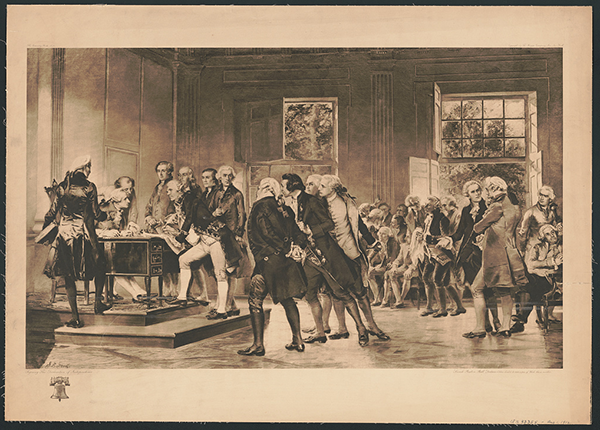Background
On July 4, 1776, the United States officially declared its independence from the British Empire when the Second Continental Congress adopted the Declaration of Independence. The Declaration was authored by a “Committee of Five”—John Adams, Benjamin Franklin, Thomas Jefferson, Robert Livingston, and Roger Sherman—with Jefferson as the main drafter. But writing to Henry Lee in 1825, Jefferson himself admitted that the Declaration wasn’t meant to be original. Instead, it “was intended to be an expression of the American mind, resting on the harmonising sentiments of the day,” as expressed in conversations, letters, and (what he called) “elementary books” of philosophy, including Aristotle, Cicero, John Locke, and Algernon Sidney. In short, the Declaration of Independence brings together the core principles at the heart of the American Revolution, including natural rights, popular sovereignty, and the rule of law.








